8 best sleep apps for tracking patterns, drifting off and waking up gently
Catch your 40 winks during these uncertain times with the help of these aids
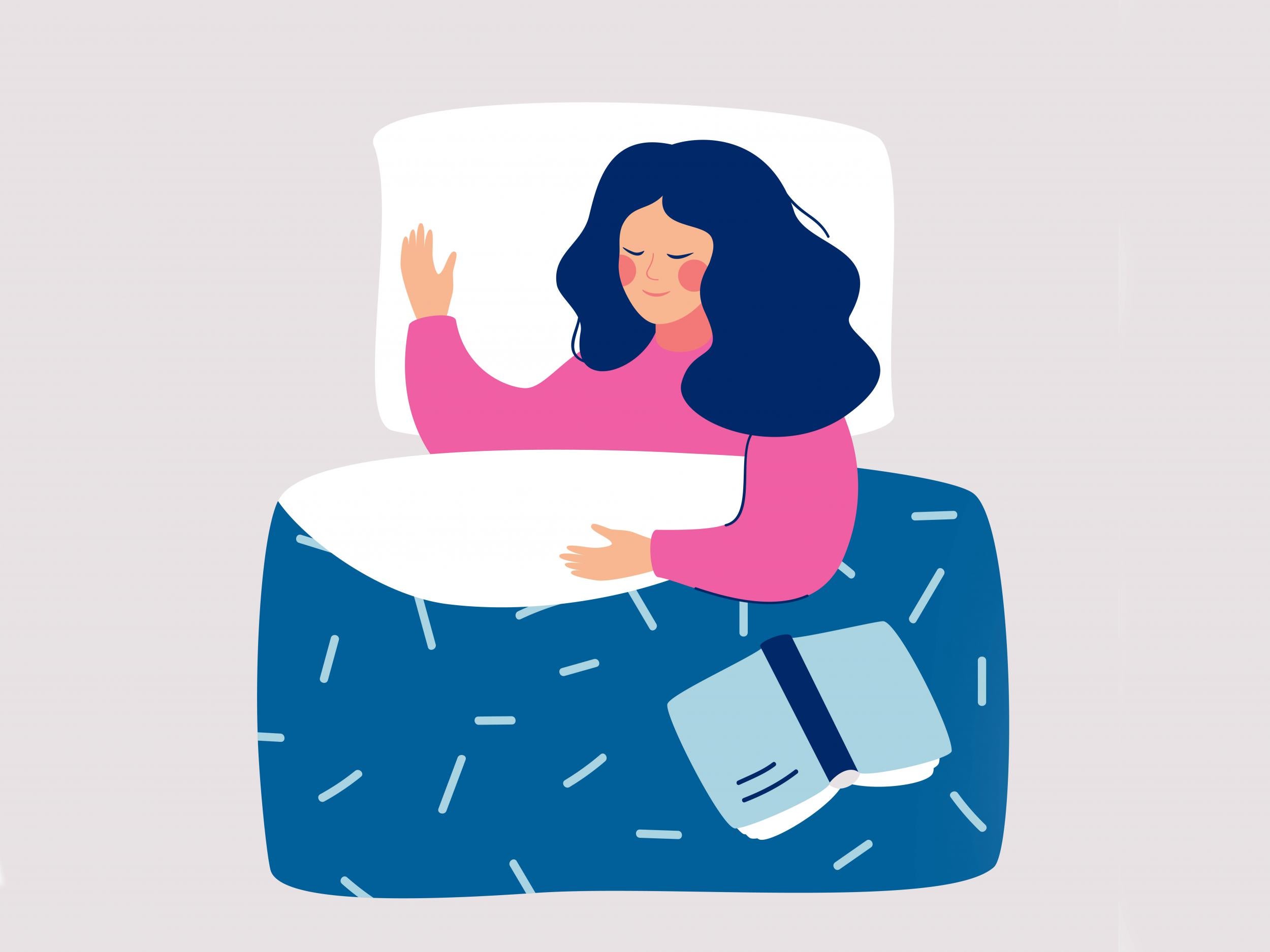
Your support helps us to tell the story
From reproductive rights to climate change to Big Tech, The Independent is on the ground when the story is developing. Whether it's investigating the financials of Elon Musk's pro-Trump PAC or producing our latest documentary, 'The A Word', which shines a light on the American women fighting for reproductive rights, we know how important it is to parse out the facts from the messaging.
At such a critical moment in US history, we need reporters on the ground. Your donation allows us to keep sending journalists to speak to both sides of the story.
The Independent is trusted by Americans across the entire political spectrum. And unlike many other quality news outlets, we choose not to lock Americans out of our reporting and analysis with paywalls. We believe quality journalism should be available to everyone, paid for by those who can afford it.
Your support makes all the difference.Considering we spend a third of our lives in bed, we’re pretty awful at sleeping. One quarter of UK adults report suffering from insomnia, while two thirds say their sleep is disrupted on a regular basis.
You don’t need an app to tell you that restless nights, snoring partners and getting to bed late all contribute towards poor quality sleep, which impacts our health and happiness throughout the day.
So it’s no surprise that more of us are turning to sleep apps to help us drift off. These apps range in functionality, from monitoring how well you sleep by tracking your tossing and turning, to preparing you for a restful night by placing you in a serene state of mind.
Some are designed to soothe you with hypnotic bedtime stories, others take a more scientific approach, offering graphs and statistics for you to analyse over your morning coffee.
We’ve gathered eight of the best sleep apps for tackling your insomnia and improving your snoozing. Of course, no two people are the same, so choosing a sleep app that works for you inevitably involves a lot of personal preference and subjectivity.
Read more:
We tested each app for effectiveness and ease of use – nothing you do before bed should be too mentally taxing – as well as features and value for money. Where an app has a broader application beyond just getting some kip, we’ll include those details too.
You can trust our independent reviews. We may earn commission from some of the retailers, but we never allow this to influence selections, which are formed from real-world testing and expert advice. This revenue helps to fund journalism across The Independent.
Headspace: Free to download (optional premium subscription £49.99 per year), iOS/Android
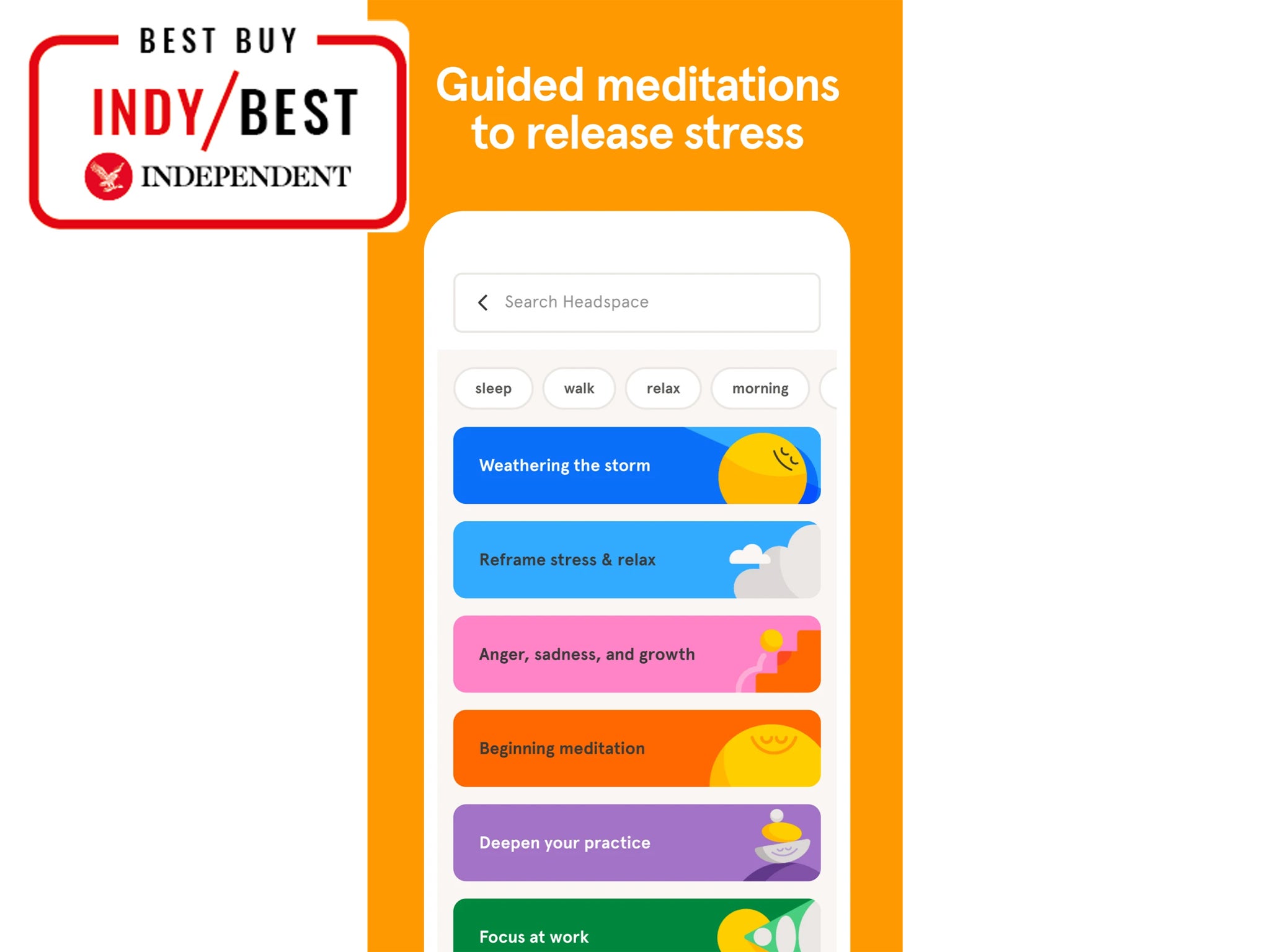
Best known as a meditation app, Headspace also hosts a suite of tools to help you wind down before hitting the hay. With the free version you get access to a series of bedtime stories, which gradually dial down the noisier parts of your brain by speaking in soothing tones about various calming scenarios, such as taking an island drive or exploring an antiques shop on a rainy night. We especially like the emergency ten minute sessions designed to help you drop off again when you wake up in the middle of the night.
Voice artists are carefully chosen for their deeply sensuous and lulling timbre, and the paid version gives you access to their full suite of meditations. These are primarily focused on daytime activities such as focusing at work, but it’s been shown that practicing mindfulness and reducing stress throughout the day also helps with restful sleep.
Slumber: Free to download (optional premium subscription £34.99 per year), iOS/Android
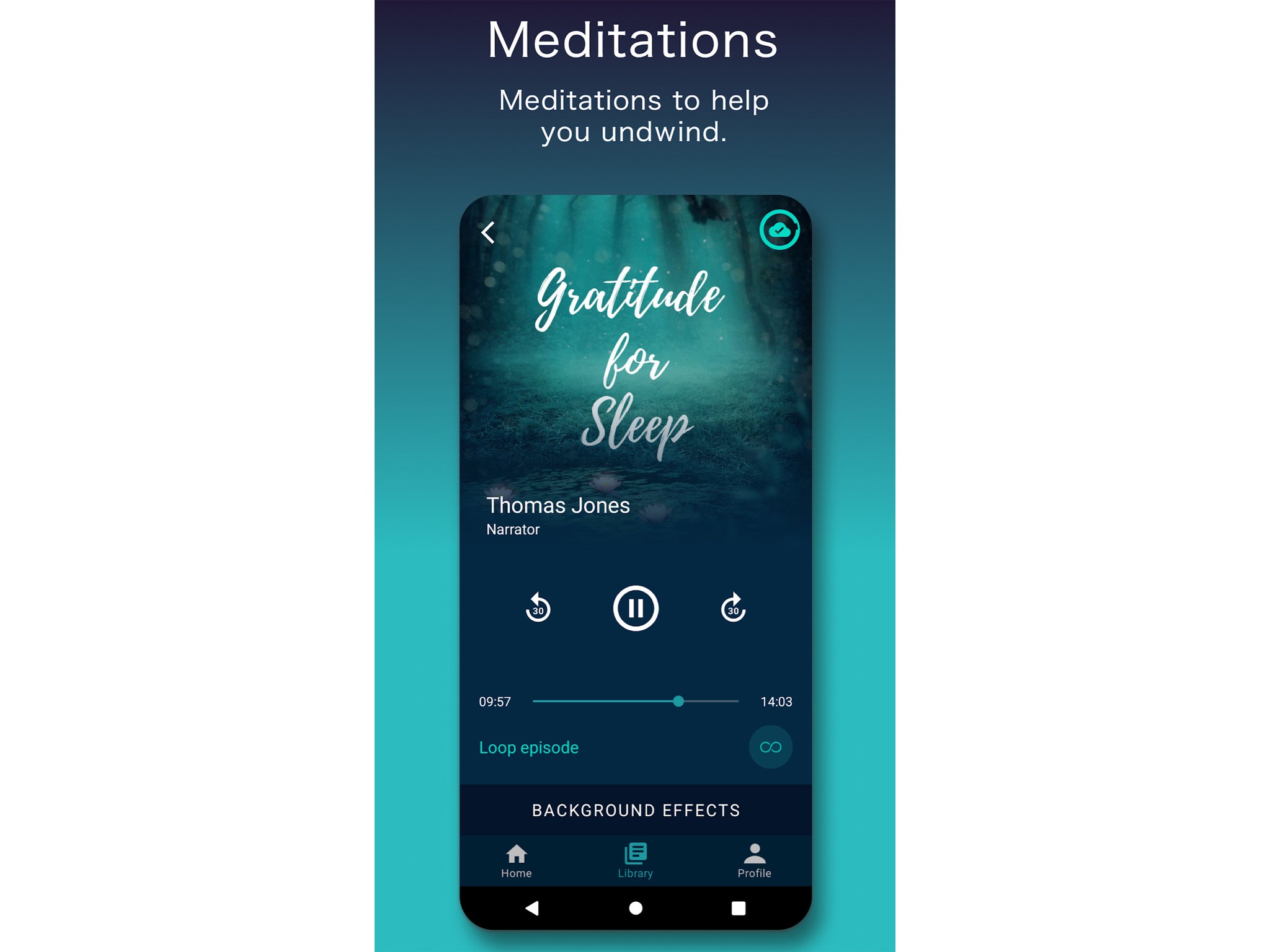
If you enjoy dozing off to podcasts or audiobooks, then Slumber is for you. This highly effective sleep app uses gentle stories and sounds to send you to sleep. You can adjust the volume of the background ambient noise, choosing from such samples as a crackling campfire or the patter of rain on a window, as well as the volume of the storyteller.
Each story is its own hypnotic meditation session, carefully designed to induce sleepiness by subconsciously inviting the listener to mentally participate in the scene. Once the story is finished, the ambient sounds continue to play until you’ve zonked out.
Portal: Escape Into Nature: Free to download (optional premium subscription £29.99 per year), iOS
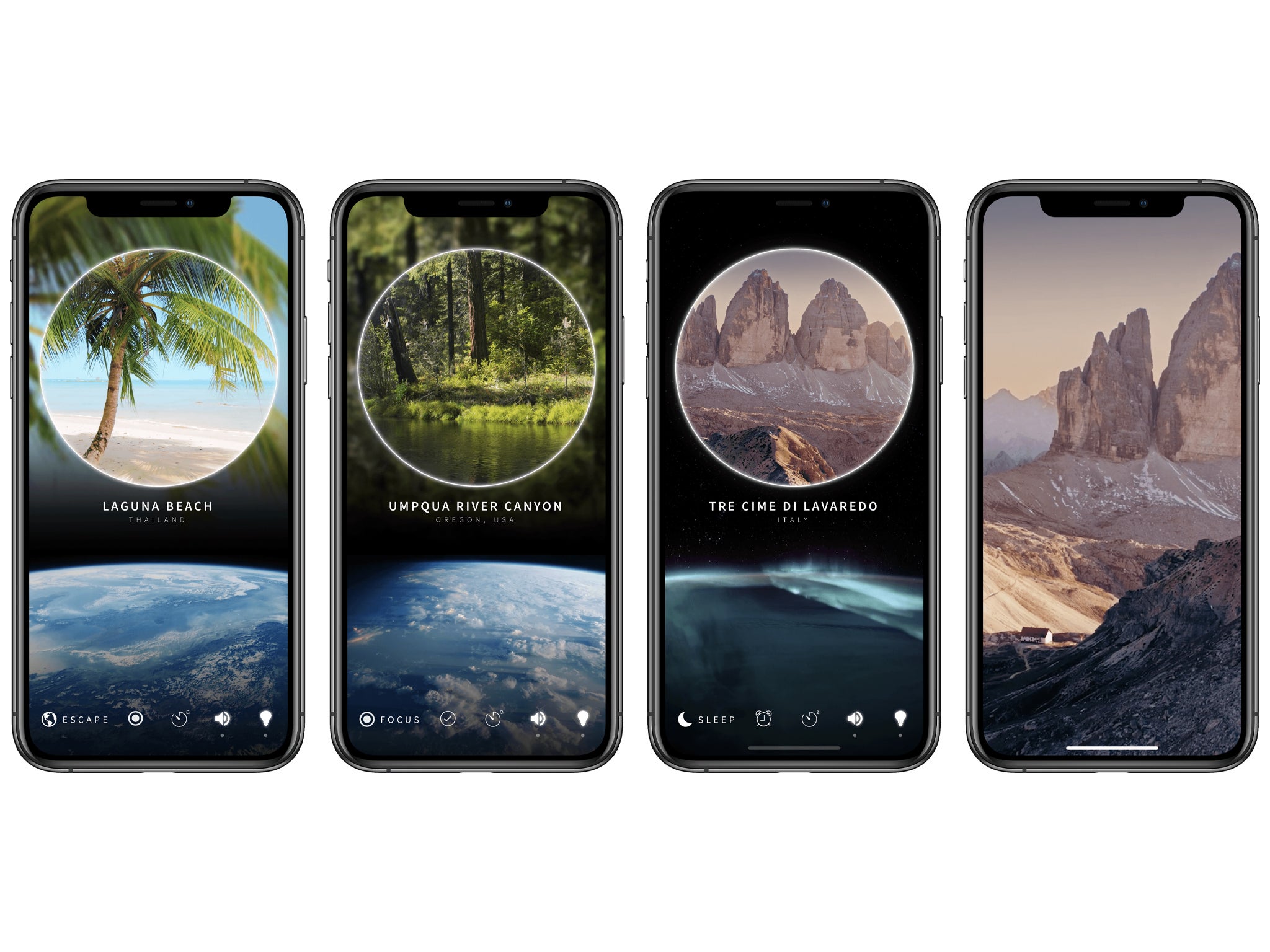
Portal turns your phone into a virtual teleportation device, inviting you to step through a hole in the space-time continuum to a variety of peaceful spots around the world. Each one of these locations is its own audio-visual spectacle, from the gentle lapping of the waves on the shore of Lake Bled at dawn, to the calming rush of the wind as it sweeps across barley fields in Devon.
What sets Portal’s soundscapes apart is that these are real places rather than abstract inventions, a subtle distinction that helps you feel genuinely transported to somewhere far away. If you’ve got Philips Hue smart bulbs, you can synchronise the lighting in your bedroom to enhance the experience even further.
Calm: Free to download (optional premium subscription £28.99 per year), iOS/Android
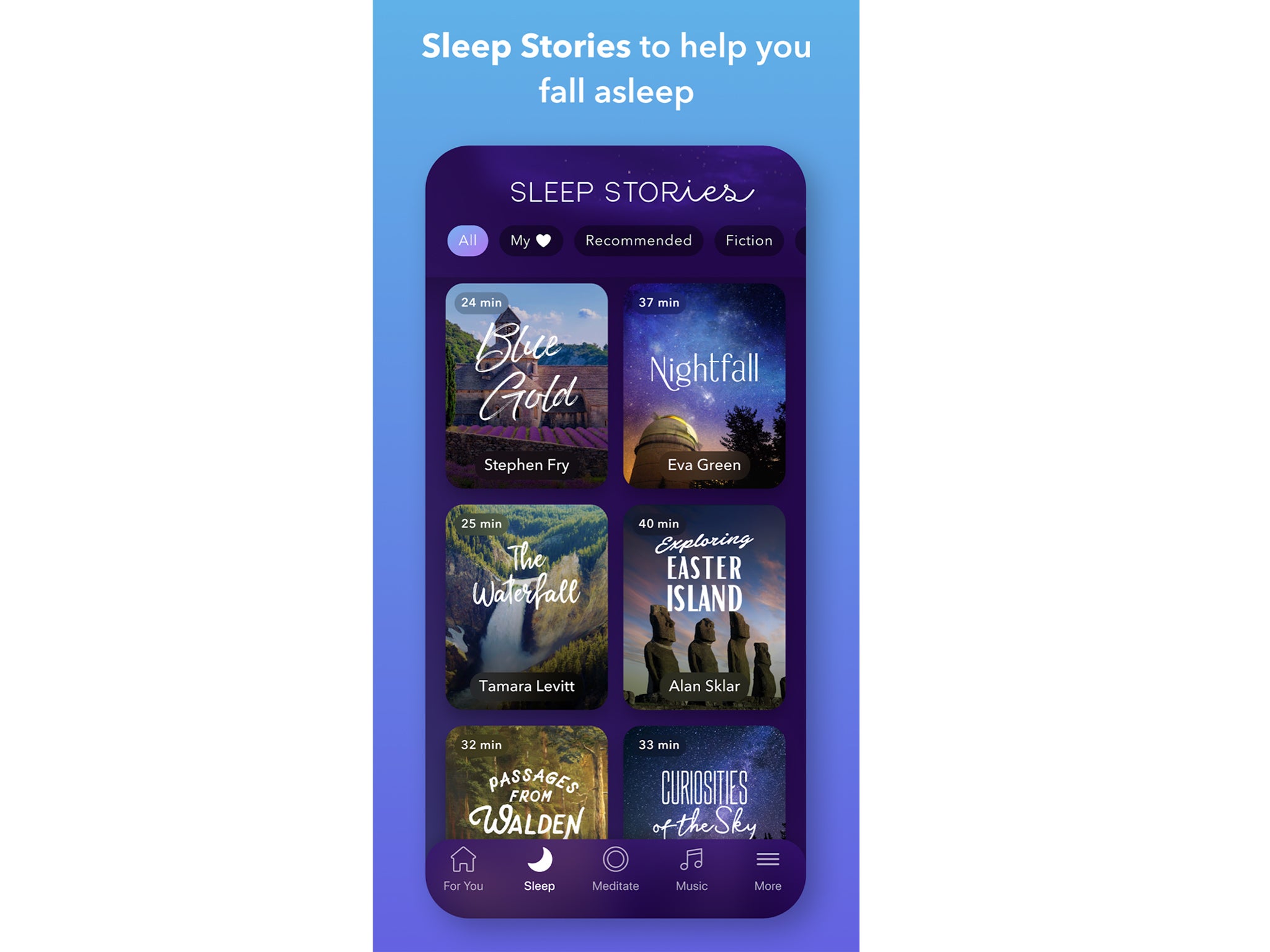
Calm offers a comprehensive suite of meditations, designed to help you focus at work, develop gratitude, build self-esteem and more. Among its features is a sleep-boosting set of constantly updating mindfulness sessions, which combine bedtime stories, nature sounds and relaxing music to help you switch off and slow down. In one story, actor Matthew McConaughey narrates a dreamy exploration of the wonders of the universe (which might have the opposite of its intended effect if you’ve just been rewatching True Detective).
Voice recordings in this sleep app have an ASMR quality to them – that intimate sense of closeness that makes your skin tingle – and if Matthew’s dulcet tones aren’t for you, there are lots more to choose from. Calm’s giant audio library includes stories for kids too.
Pzizz: Free to download (optional pro subscription £59.99 ), iOS/Android
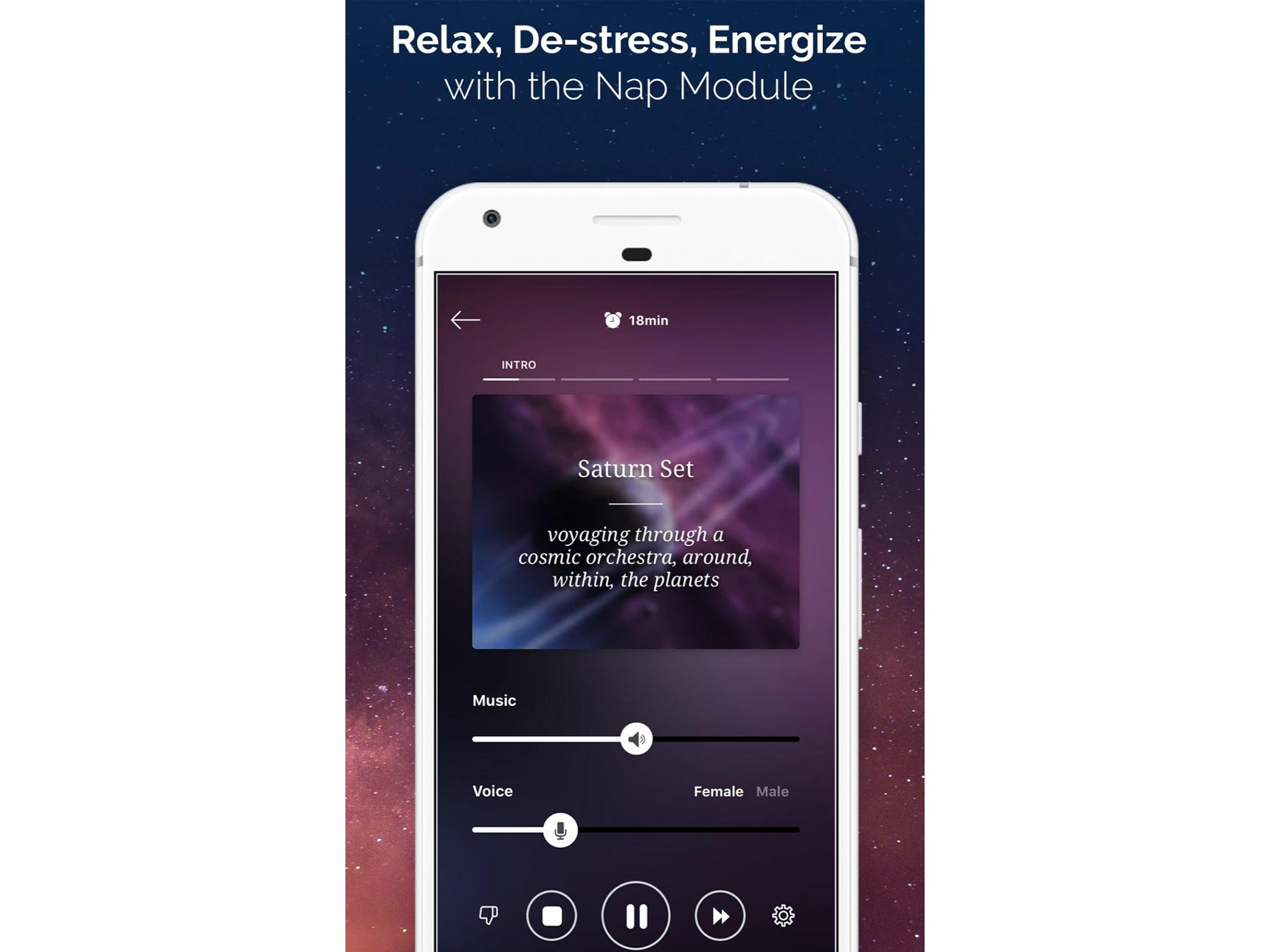
Taking advantage of something Pzizz likes to call “psychoacoustic principles”, this clear and easy-to-use sleep app lets you set a target time in which to fall asleep, then generates a custom playlist of soothing nature sounds and calming voice-overs to gently guide you into sweet, sweet somnolence.
Using binaural sound tech, the app creates an effective sensation of being in a 3D space when used with earphones, transporting you from your bed to your happy place (so long as you’re comfortable sleeping with earphones in). The paid version adds more features, such as a nap mode and a focus mode for daytime use, as well as the ability to choose from a range of different sounds to fall asleep to.
Pillow: Free to download (optional premium subscription £39.99 per year), iOS
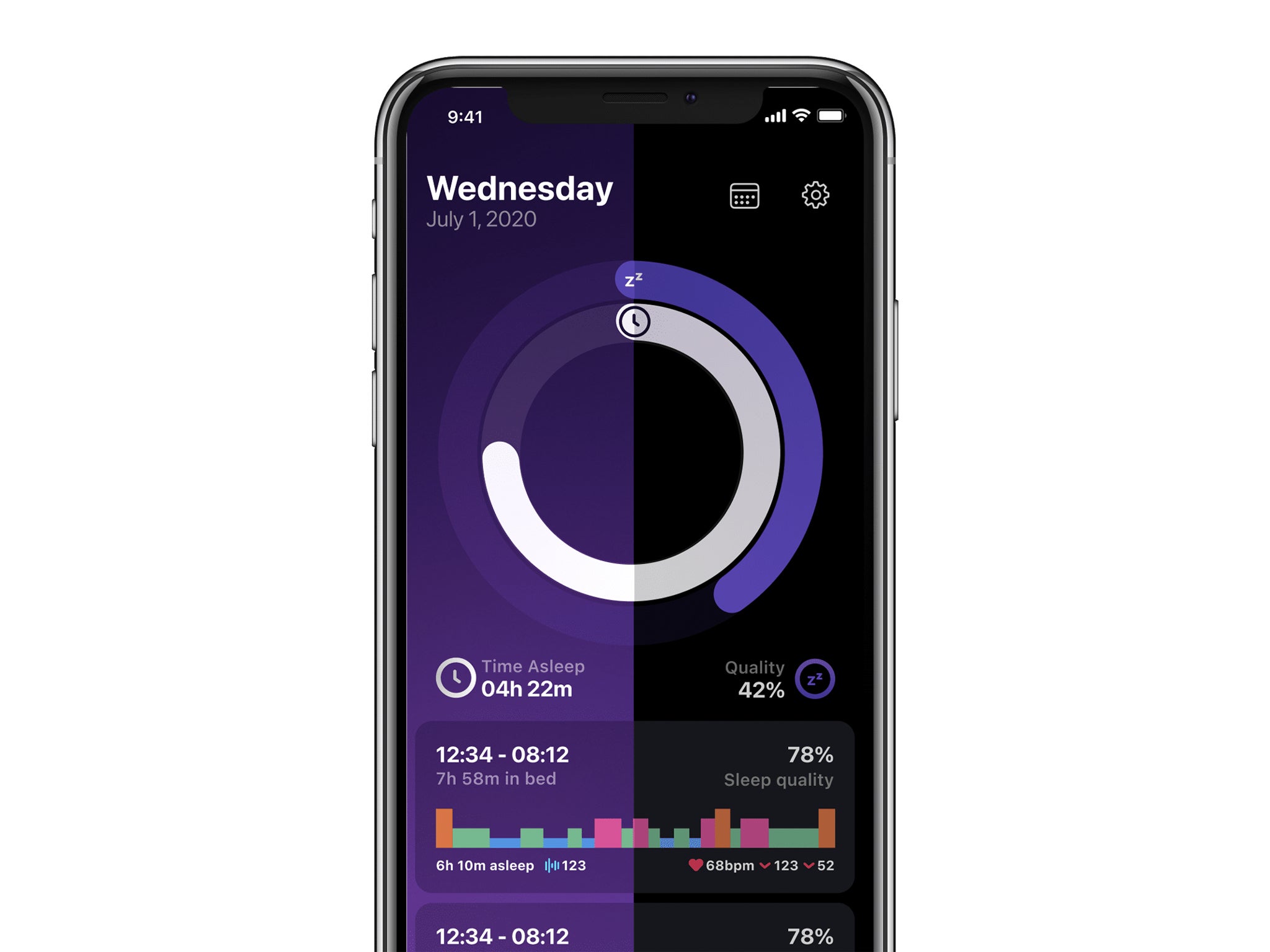
Pillow works with your Apple Watch to monitor your sleep patterns and provide you with a detailed breakdown of how your night went down. Clear and easy to understand graphs and charts tell you how long you spent in each stage of sleep – deep sleep, light sleep and REM sleep – as well as any interruptions that may have happened in the night.
A useful “quality score” metric gives you a straightforward way to track any improvement to your sleeping habits over time. Pillow can also help you in the morning by waiting until you’re at the lightest stage of sleep before gently waking you up using subtle vibrations.
Sleep Cycle: Free to download (optional premium subscription £24.99 per year), iOS/Android
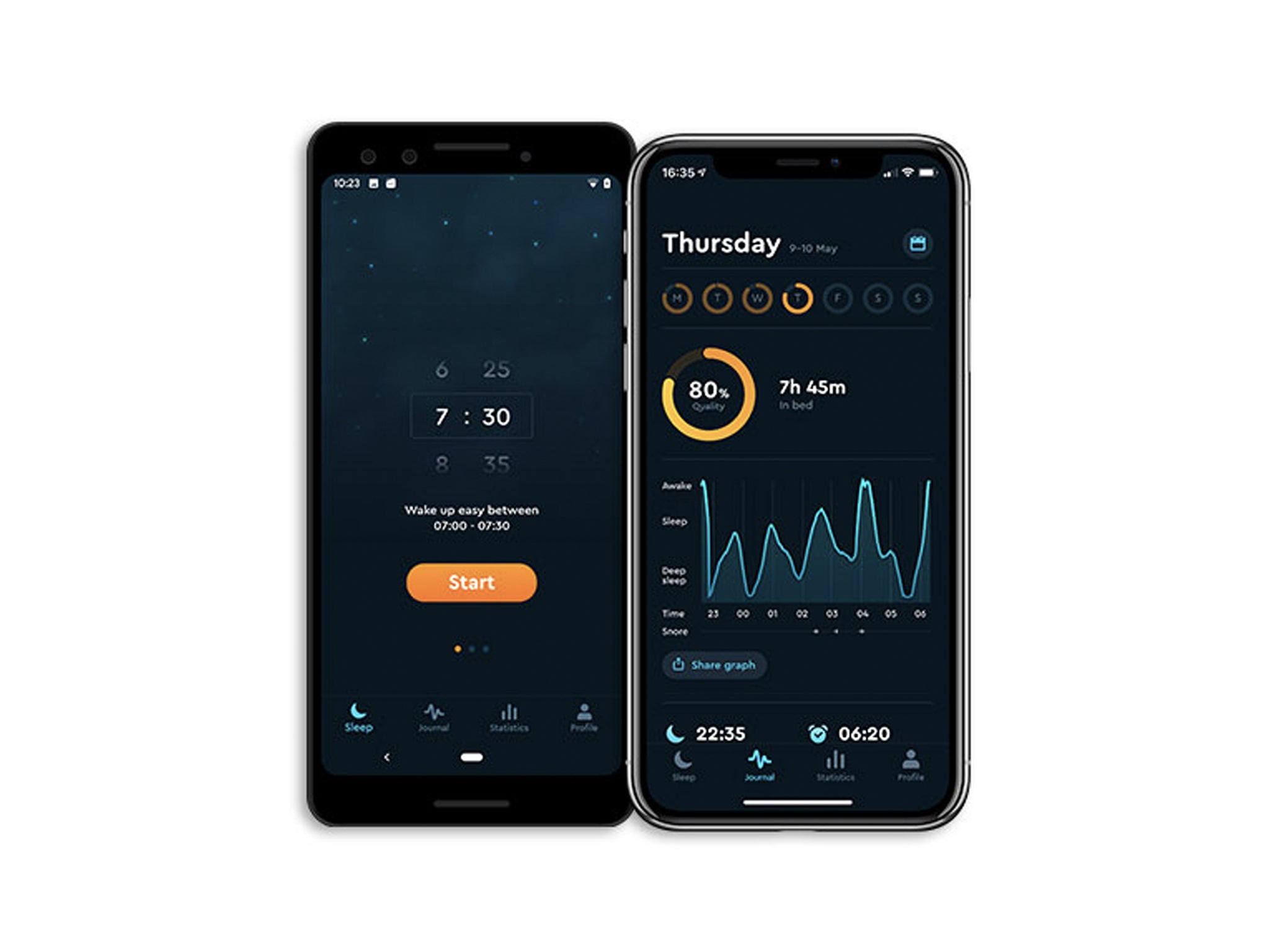
How well we wake up can be just as important as how well we sleep. Sleep Cycle is one of the first and most popular sleep trackers available. It uses your phone’s accelerometer and microphone to monitor how much you move around in bed, then uses that information to determine which stage of sleep you’re currently in.
Set a “wake up window” and the app’s intelligent alarm clock waits until you’re at the lightest phase of sleep before gently rousing you with natural sounds and soothing music. (Don’t worry, you can set it to ring more aggressively if you sleep through the quieter alarm). We found Sleep Cycle to be just as responsive to motion whether the phone was in the bed or next to it, but if you share your bed with a partner then this data will inevitably be skewed by their movements too.
Noisli: £1.99, iOS/Android
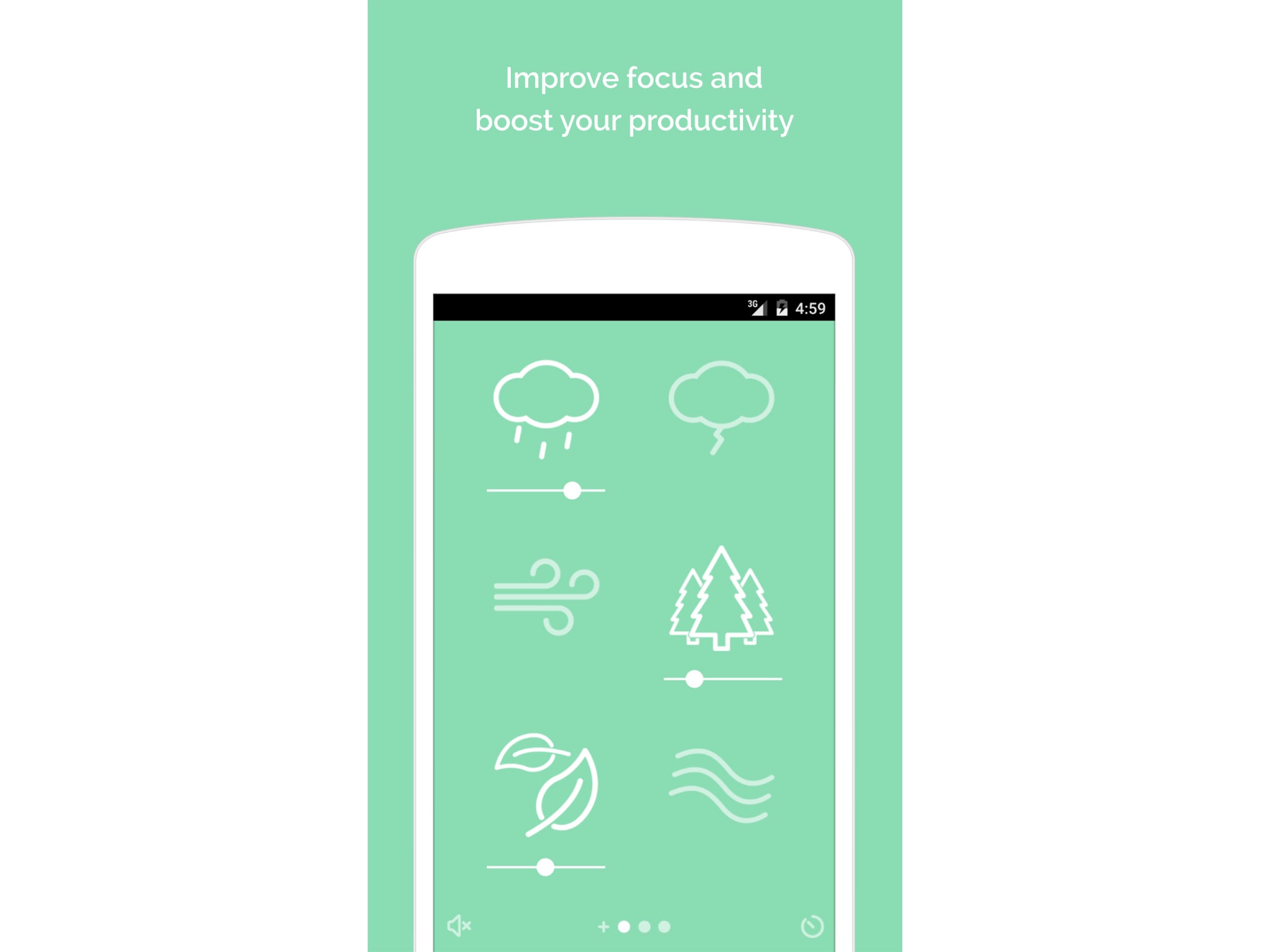
With a library of high-quality ambient sounds to choose from, this focus enhancing app blocks out external distractions so you can sleep better. Noisli lets you mix and match from a selection of different samples to create your own personal soundscape until you find the perfect combination for you, then save it so you can return to it next time.
Sounds include some of nature’s greatest hits, such as the distant rumble of thunder and the rustle of leaves through the forest, and are best experienced through a comfortable pair of earphones you’re happy to fall asleep in. If you’re looking for a simple ambient noise app with no extra frills, Noisli is the way to go.
The verdict: Sleep apps
For helping you settle into a zen state of mind before bed, we recommend Headspace. It lacks the tracking features of the more scientifically minded apps in our list, but we reckon preparation is far more important than monitoring when it comes to getting a good night’s rest.
If you’re the kind of person who thrives on data, however, Sleep Cycle and Pillow provide reams of helpful information to pore over in the morning, helping you make small adjustments to your nightly habits and achieve better sleep.
Compare the best mobile deals with Independent compare
From pillow sprays to weighted blankets, here are the best sleep aids to help you rest easy